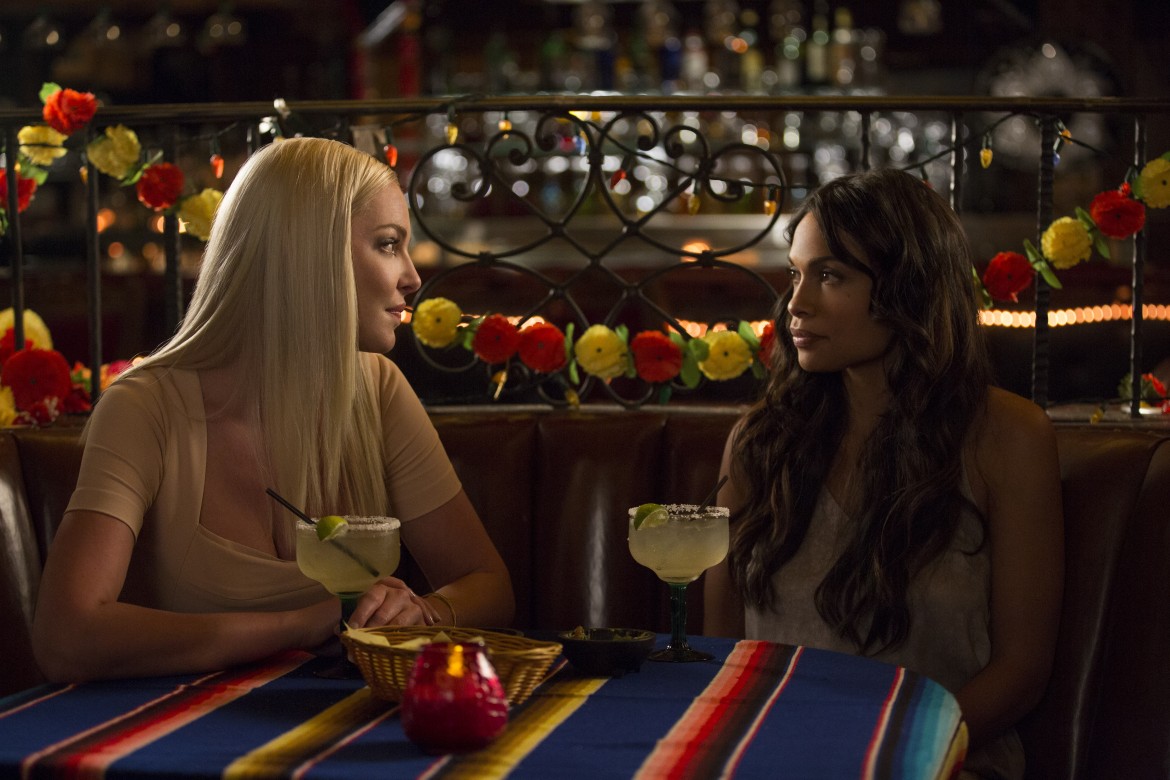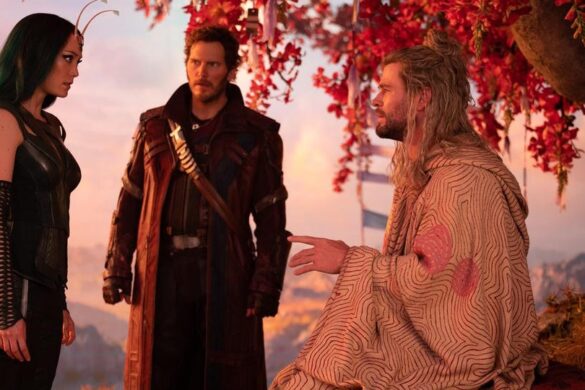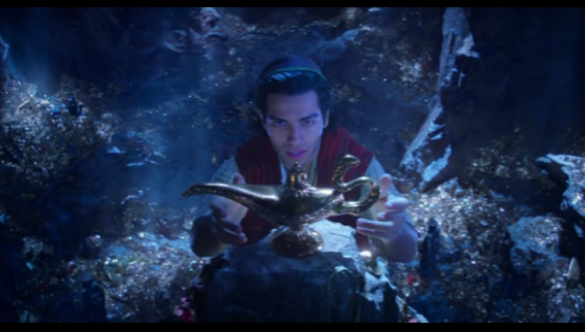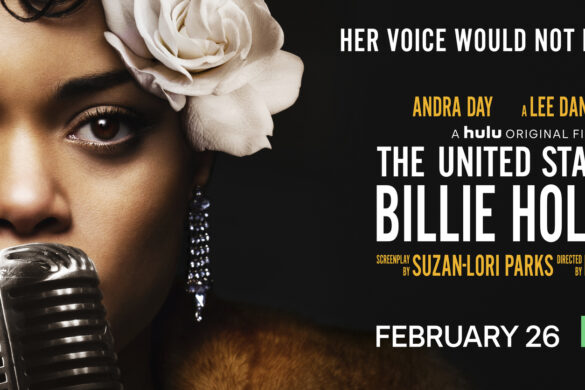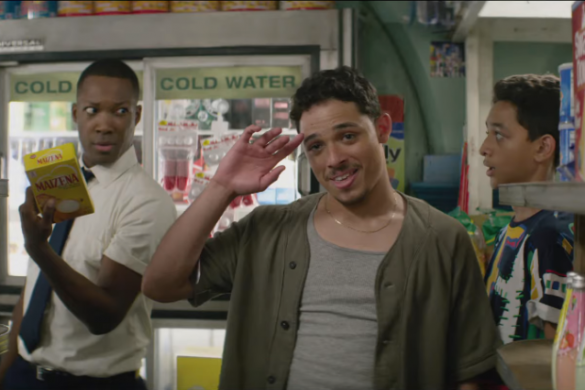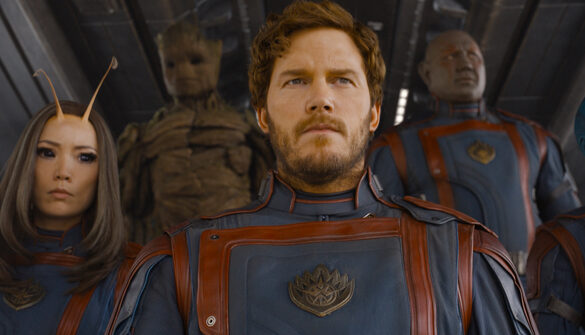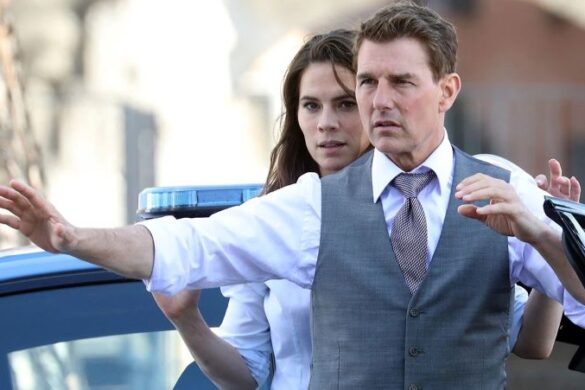Transitioning from powerhouse producer of films like Heathers, Edward Scissorhands and Crazy, Stupid, Love to helming with this week’s release of Unforgettable, is director Denise Di Novi. A multi-level visionary, Di Novi transforms sage insight from years in the industry to the silver screen in a wickedly real, and fun tale. Starring Rosario Dawson as Julia, Katherine Heigl as Tessa and Geoff Stults as David, Unfogettable follows two opposing women trapped in a tangled romantic web. Although appily engaged to David, the man of her dreams, Julia is secretly a domestic abuse survivor. Yet, too many skeletons and silent whispers make it nearly impossible to function in a healthy relationship. Despite a wealthy upbringing, Tessa has her own obstacles to conquer. Tessa can’t bear the thought of bouncing back from divorce and living without David. She desperately wants Julia out of the picture. Will Tessa’s overbearing mom help or hinder this dangerous quest?
Through Di Novi’s lens, a compelling story reveals life’s numerous complexities ever-evolving when traumatic events come into focus. Unforgettable doesn’t paint Julia and Tessa as good vs. evil. Instead, this romantic thriller organically explores the motivation behind trekking into “dangerous” territory. Heigl’s Tessa is a ruthless, shrewd terror – raised to be perfect. Dawson comprehends Tessa’s reprehensible behavior, and describes her foe as relatable to a fault. “When (her) mom says, ‘You are destroying your life.’ That’s the one thing that every daughter repeatedly hears, before responding like, ‘Ma’m I am grown!’”
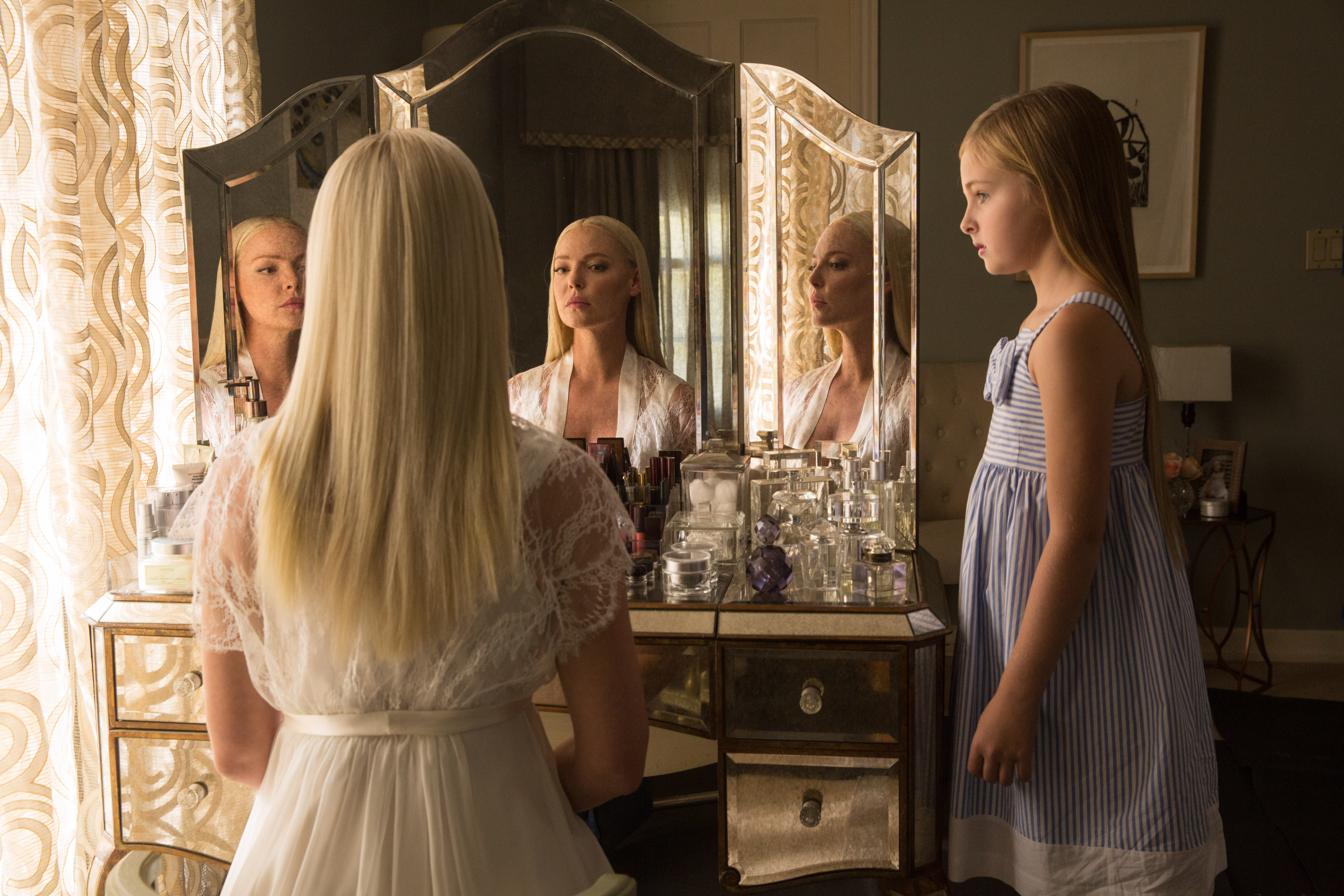
There’s that 12 year-old inside of you that is like, “Maybe, I have messed up. There’s so many moments onscreen when you see reveals about education and previous relationships. Or, certain dynamics that came out. That’s why it’s eerie to see (Tessa’s daughter) walking in her heels.” Her (Tessa’s) control issues were learned behaviors: being taught to have the perfect body, perfect hair, perfect family, which her own mother blames her for destroying. “We still have to look at the ugly in our lives. We have to fall to come out of those ashes. By not doing that we stay a victim rather than a survivor.” Dawson explained how Tessa saw herself and would inevitably not be able to deal with her loss of control.
For Heigl, everything comes down “cultural conditioning,” through Tessa’s inability to suppress her instability. This weakness goes into overdrive when David creates a stable environment for him and Julia. Heigl shared, “You get in the habit and things are ingrained sometimes. You’re not even paying attention. You think you’re doing your best and you are: and then you say something and go, ‘”That was demeaning. That was my mother: Or, even just—it’s how it is in the area you grow up in. Our mothers are the victims of the same type of cultural conditioning.” Tessa is the prime example of childrearing gone very wrong. It’s extremely tragic to Heigl and the nature of Tessa’s obsession ,”She’s obviously had some mental instability that was never addressed as a child. She was never taken to someone to be helped. It was all denied.”
Dawson added that the film focuses on how two women deal with shame. While one internalizes it and tries to move on, the other explodes, “What was remarkable is that we really took into account just how corrosive shame is. We’re the majority sex of the planet and somehow our shame is that we are abused. For some reason, that’s still a part of our cultural conversation. Julia did that work, she got out of that relationship, she got therapy and then she turned her life around and met someone. I think ultimately people experience that feeling of, ‘’I’m a fraud.’ You fell in love with this fake new person that I’ve created with these steps, that I’ve practiced the past couple of years but that’s not who I’ve been. Most of my life, I’ve been a victim: Someone who suffered at the hands of bad people and allowed that to happen: despite our love for them. I’m ashamed of that and now I’ve got this amazing human being in my life: who sees this new person who I’ve worked really hard to be. And, I don’t ever want you to know about that other person because I’m afraid this is the fraud! And, that’s who I still am. The fact that she did that work and still is shamed is so telling with how far I go.”

Di Novi elaborated how Julia’s secret was the crux of her confrontations with Tessa, “It was really important to me to be respectful of that experience, and show that she sought treatment. She got better but is still keeping this secret.” And its discovered by Tessa who uses her past against Julia but Di Novi made it a point for it not pit both women against each other in a sort of predictable catfight/psycho thriller. “Interestingly, the person who brings out that secret is Julia. Doing that and having to be vulnerable and tell David ‘I’m sorry I didn’t tell you. I thought you wouldn’t love me if I did.’ He says, ‘I love you. I love all of it. It’s okay. I love all of you.’ To see that acceptance and her courage in finally being honest and seeing that is what healing is: not being ashamed of that experience.”
Meanwhile, Tessa keeps losing and can’t handle continued disappointment which leads to the film’s emotionally-explosive ending between both women. Tessa becomes unhinged in a way where there’s no turning back. “In that moment, though it becomes about protecting her daughter from the trauma of seeing her like that: It’s more like, just close her eyes at night and not let her see this. Because this is traumatic!” Heigl described her character’s arc in this way, “As a mother, there are moments I wish my children hadn’t witnessed something either. If it’s their dad and I having a fight or someone in our home acting uncharacteristic. But it does weigh on you as a parent. You don’t wanna be paying for their therapy.”
Both actresses agreed that workign with Di Novi helped them make a “popcorn flick” to see with girlfriends. It doesn’t exploit women through the male gaze, but rather shows how living to please men could go very wrong and have consequences for women. Dawson celebrated working with Di Novi as a good change telling this story from a different perspective. “There’s this sort of unspoken kind of thing that exists among women that make there be competition or feels like you can actually really communicate. It’s really interesting and really depends on the person. I feel like we were all real game to get really personal and get really specific with the details. Ask each other questions and really just talk about these different scenes. We really had to get into it. There’s a reason why we wanted to tell the story and without it being a bad guy/good guy: and have you relate to all the people in it.”
Heigl agreed, “It was necessary to have that sacred space to create this because we were able to embellish and explore that thing that oftentimes doesn’t get explored because that safety isn’t there. Once we call, “action” after we rehearse, it’s very interesting that we have that duality.”
The film which was shot in a little over a month is something Di Novi is extremely proud of and happy to have shared with her actresses, “With women there’s an instant intimacy and safety. I think intimacy and safety are really good prerequisites in filmmaking especially for actors. Artists are vulnerable and put themselves out there especially in a movie like this. For me having two actresses in my first movie I was directing made me feel safer because I so connect with these two women and their characters.” she said.
And it shows when you go see the movie with friends, has fun, but also see how the world relates to these women. Life in isn’t so different from our own and you understand how some villains ends up the way she is–making it all the more tragic even after the thrilling fun.
UNFORGETTABLE is in theaters April 21st.

